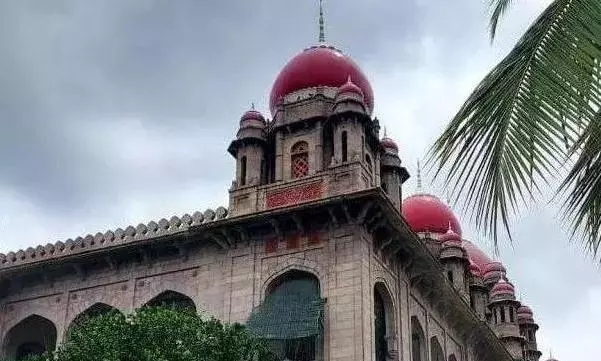Telangana HC Grants Relief in Property Dispute Over 'G Abadi' Classification

HYDERABAD: Justice C.V. Bhaskar Reddy of the Telangana High Court granted relief in a writ plea challenging the classification of a property as ‘G abadi’ (Government abadi) in the Town Survey Land Register (TSLR) without following the due process of law. The judge directed the Hyderabad district collector and other municipal authorities to seek remedies through competent civil courts if they claimed rights over the property and also restrained them from interfering with the possession. The judge further instructed the municipal authorities not to demand an NOC for construction on the property. This came in response to a writ plea filed by one Nagalla Rama Koteswar Rao, who sought relief against the classification of his property as ‘G abadi’ in the TSLR. The petitioner claimed ownership and possession of the property based on a registered sale deed that was executed in 1961. His family had constructed houses on the land after obtaining requisite permissions and had been in peaceful possession for over 60 years. However, the respondents, relying on TSLR entries prepared in 1976, classified the property as government abadi and interfered with the petitioner’s possession. The petitioner argued that TSLR entries alone could not confer ownership rights to the government. He relied on precedents, including the Supreme Court judgment in ‘Hyderabad Potteries Pvt. Ltd vs. Collector, Hyderabad district’, which established that mere entries in revenue records do not confer ownership rights and that the government must approach civil courts to assert its claims. The government pleader contended that the classification of the property as ‘G abadi’ entitled them to protect it as government land. However, the judge observed that the property had been in continuous possession of the petitioner’s family and was acquired through valid legal means before the TSLR entries were made. The judge emphasised that interference with such possession violated protections under the Constitution. Highlighting the need for due process, the judge disposed of the case, ensuring the petitioner’s right to peaceful enjoyment of the property until the dispute is adjudicated in a civil court.
Armoor municipality asked not to demolish petitioner’s house
Justice K. Lakshman of the Telangana High Court directed Armoor municipality not to interfere with the ongoing construction of a residential house until explanation regarding a disputed building permit was resolved. The judge was dealing with a writ plea filed by one Nallagonda Jyothi, claiming ownership of a 100-square-yard property in Armoor. The petitioner alleged that the municipal authorities had attempted to demolish parts of her building without following due process of law. Despite, earlier directions from the court to address the matter as per the Telangana Municipalities Act, it was alleged that the municipality issued a showcause notice accusing her of submitting fabricated documents to obtain the permit. The petitioner provided an explanation, supported by official records validating her claims, but alleged that the municipality still threatened demolition. After hearing the petitioner, the judge disposed of the writ plea ordering the municipality to consider her explanation and related evidence within four weeks. The judge also instructed the petitioner to adhere strictly with the original building permit.
Advocate accuses jail chief of denying permission to meet his clients
The Telangana High Court will hear a writ plea challenging the action of the superintendent of central prison, Cherlapally, who was obstructing an advocate from meeting his clients, who are undertrial prisoners. Justice B. Vijaysen Reddy took on file a writ plea filed by one G. Jabali alleging that the respondent was obstructing him from performing his professional and legal obligations by not allowing him to meet his clients for a legal interview. The petitioner alleged that the actions of the respondent were illegal, arbitrary and in violation of the Constitution, besides being in violation of the Prisons Act and the Telangana State Prison Rules Manual. Consequently, the petitioner sought a direction to the respondent to permit him to conduct legal interview with his clients in person as per law without any persons in audible range. After hearing counsel for the petitioner, the judge directed the government pleader to get instructions and posted the matter for further hearing.

